









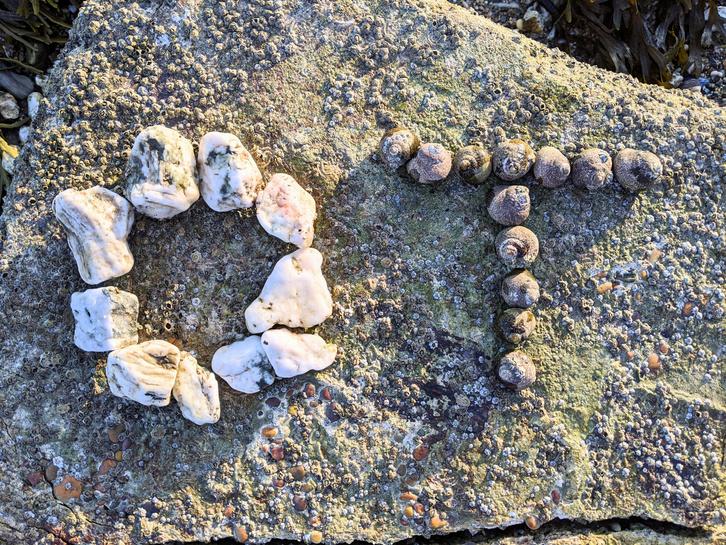
















It can seem hard to think about death But making plans for after your death can help your family and friends. Making plans for after your death can help you too. We have listed below some things it can be helpful to do.

In a Will you write what you want to happen to your money when you die. You can write what you want to happen to your things too. And you can write what you want to happen at your funeral.
It can cause problems if you do not write a Will Your money and things may not be given out to who you want. They will be given out based on legal rules.
Writing a simple Will is easy. You can buy a kit that explains how to do it. Banks, shops and supermarkets sell the kits.
A solicitor should check your Will after you write it. They will make sure you have not missed anything.
A solicitor is a person who helps people with legal issues.

There are lots of options when you plan your funeral It can help to write down what you want. You can give what you write to your family or friends. Or you can give what you write to a funeral director. Or you can put what you write in your Will.
A funeral director helps to organise and run funerals.
You can also talk to friends and family about what you want at your funeral. People often feel better after they talk.
You can find more information on planning a funeral at hospiceuk.org/arrange-a-funeral

It can help to plan what you want to happen if you get very ill. You can think about what care you would like. And where you want to be cared for And if there are treatments you do not want
Planning can help to think about what is most important to you. You should write down your plans and give them to someone you trust. A doctor or nurse can give you a form to write your plans down. It is called an advance care planning form.

Your organs are things like your kidneys and liver. You can donate your organs to other people when you die. Your organs could be used to help people who are ill and need a transplant.
There are different laws about this in England, Northern Ireland, Scotland and Wales. The NHS has a website to tell you about the laws near you. The website is organdonation.nhs.uk

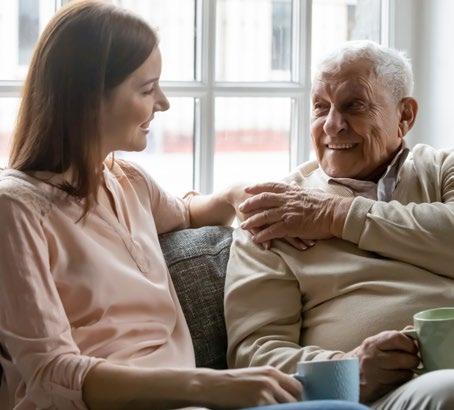
Many of us have personal information online This includes on social media and websites. We have information on our phones and tablets too. Often it is protected by passwords.
It is good to decide what you want to happen to your information when you die. And you should choose who you want to take action for you. You can get more help at digitallegacyassociation.org
You should let your friends and family know about your plans. Especially if you want them to help with your plans. You should also keep your plans somewhere safe. And let your friends and family know where they are.



If you wait until it’s too late, medical professionals may make important decisions without knowing what matters to you.
Whether you’re preparing for the years ahead or need us right now.
We support you to make informed decisions, start honest conversations about death and dying, and record and revisit your wishes whenever you want, for free.
Health power of attorney
A legal document used to give someone you trust the power to make decisions for you.
Living will (advance decision)
Used to refuse any medical treatments that you do not want to be given in the future.
Advance statement
Used to say what care you do want, for example where you want to live and be cared for.
DNR (do not resuscitate) forms
A form you can only get from your doctor which is used to protect you from being given CPR inappropriately.
Want to talk to someone about end-of-life planning?
Contact us for free:
info@compassionindying.org.uk 0800 999 2434 compassionindying.org.uk
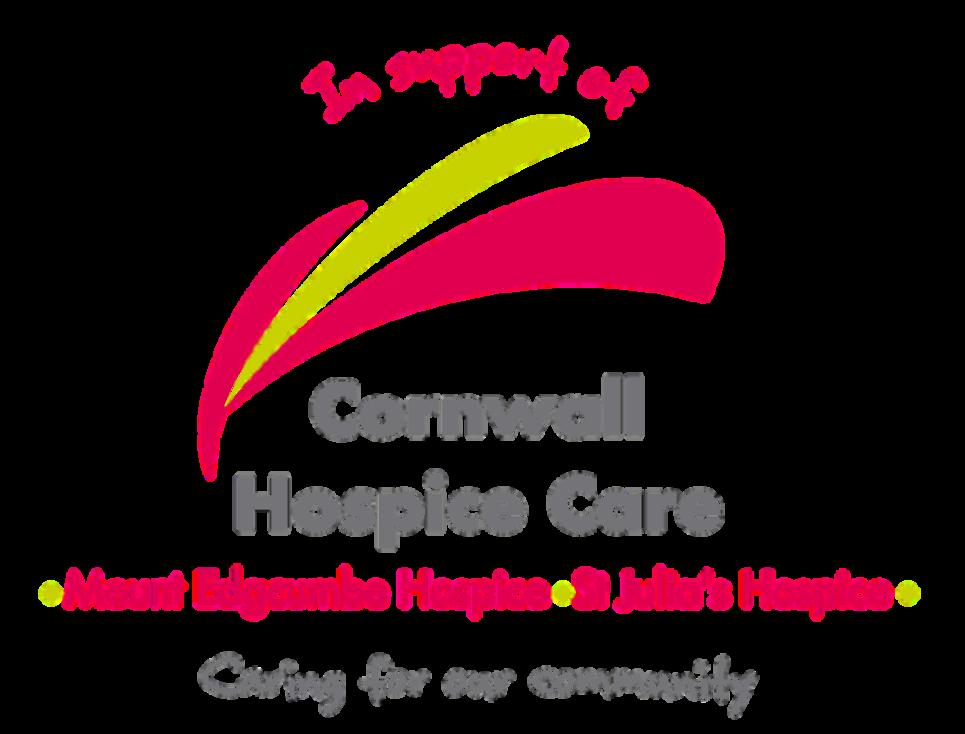
When getting in touch, please tell the firm that you would like to book a free Will appointment through Cornwall Hospice Care’s Make a Will Scheme
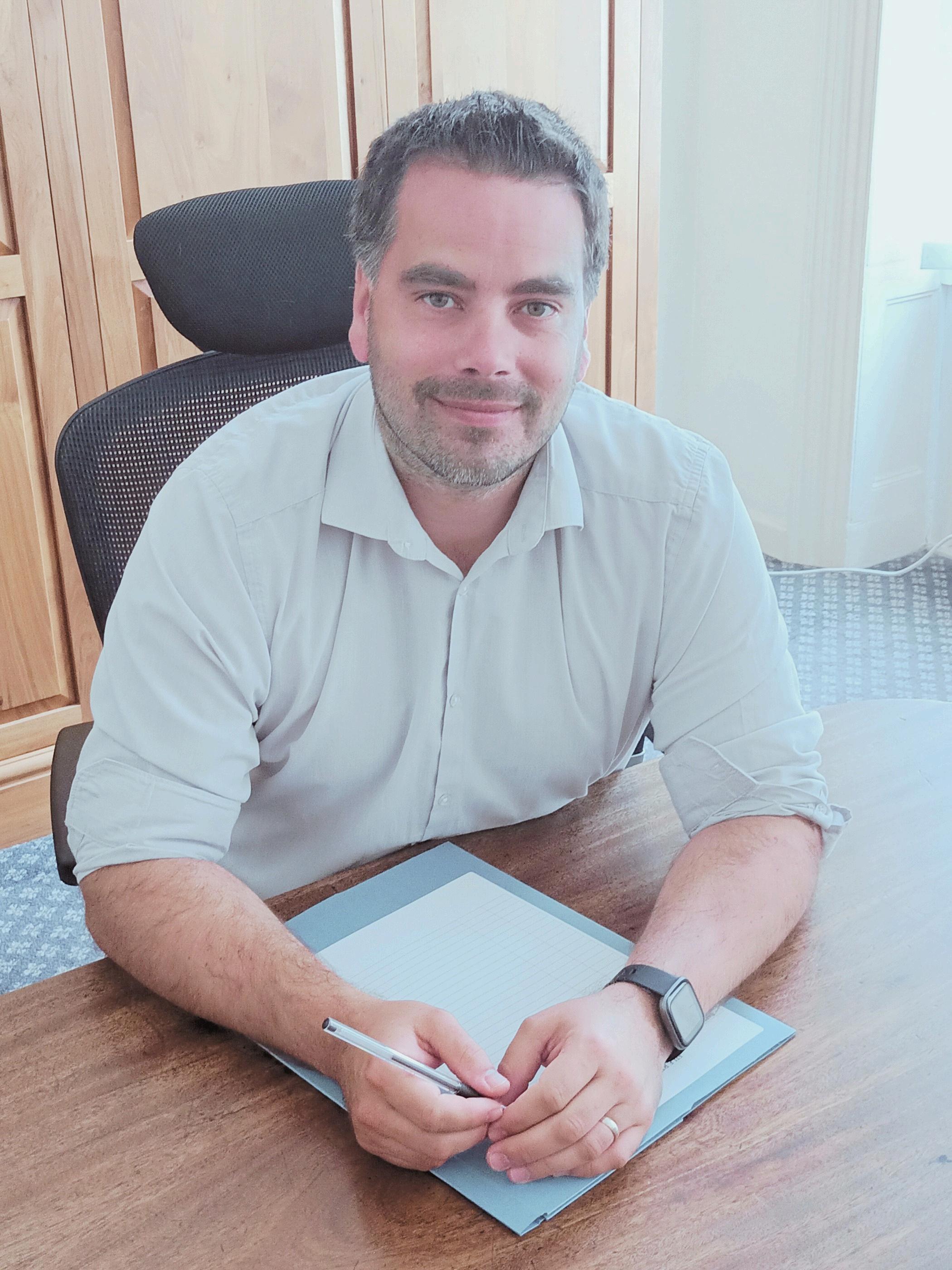


Walters
Camborne: 01209 712 454
In Office Appointments
At Home Appointments **
Hospice Appointments ** ** - depending on location
Charles French
Truro: 01872 263813
Newquay: 01637 818415
St Austell: 01726 67660
In Office Appointments
Hospice Appointments
Telephone/Video Appointments
Randle Thomas
Helston: 01326 572 951
In Office Appointments
At Home Appointments
Hospice Appointments
Ralph & Co
Wadebridge: 01208 812 277
In Office Appointments


We believe that everyone deserves the right and opportunity to create their Will and get their affairs in order, and we understand that not everyone is able to complete a Will online, which is why we have filled this gap with the support of our wonderful local Solicitors.
Appointments vary depending on our Solicitor’s availability and how many appointments are allocated per year
If an in-person appointment is more suitable for you, please call our Fundraising Office and a member of our team will let you know if there are any available appointments.
Alternatively, please see the reverse of this page to see the current Solicitors which are taking part and contact them directly
When getting in touch, please tell them you would like to book a free Will appointment through Cornwall Hospice Care’s Make a Will Scheme.

Make a Will Online
We have partnered with the trusted service and professional platform, Make a Will Online, to give you the opportunity to make your Will online for free, from the comfort of your own home
It takes as little as 15 minutes to complete your Will and every document is checked by a fully qualified Solicitor shortly after you ’ ve finalised, for peace of mind.
You will also benefit from free access to Capacity Vault The best way to protect the wishes in your Will from challenge
Visit: www.cornwallhospice.co.uk/giftsinwills
Need help? If you have any questions about leaving a gift in your Will to Cornwall Hospice Care, please don’t hesitate to get in touch.
“We are honoured to support a charity that does so much good for our community and those we love. We have all been touched by or heard positive accounts of how Cornwall Hospice Care has helped those when they are at their most vulnerable and need the peace that the charity provide.
It is so important to ensure that your affaiirs are in order and that a Will is made, to not only provide yourself with peace of mind, but to also ensure your instructions and wishes are detailed so those you trust and care for are protected Making a Will is not complicated and when provided with clear, friendly and professional advice, you will be assured that you have done the right thing.
Please feel free to talk to our friendly team at Randle Thomas LLP as we are happy to help you now or when needed in the future We offer in office appointments as well as home or hospice visits and by doing so you will be helping us and others to support Cornwall Hospice Care ”


Cornwall Hospice Care is celebrating being granted Veteran Aware status. The Cornish healthcare charity has also achieved a silver standard for the Defence Employer Recognition Scheme, the Armed Forces Covenant Scheme that encourages employers to support those who have served and inspire others to do the same. The news has been shared with the charity’s staff and volunteers at three events.

The first event was held at the charity’s St Julia’s Hospice in Hayle on Tuesday 8th October where Helen Hurst RGN QN from the Veteran Covenant Healthcare Alliance (VCHA) said; “We want to reach in to the Armed Forces community to explain what hospice charities do and to encourage collaboration. I’m honoured and privileged to present Cornwall Hospice Care with their Veteran Aware status ”
Also at the event was Councillor Louis Gardener, Cornwall Council’s Armed Forces and Veterans Champion and a former Royal Navy Officer of 20 years; “There are 39,000 veterans in Cornwall, the highest concentration in the country. One in five people here have a link to the Armed Forces and initiatives like this are to be welcomed and encouraged ”
Spreading the word about Veteran Aware
Commander Richard Turrell RN from RNAS Culdrose added; “It’s my job to spread the word about links with charities such as Cornwall Hospice Care, with regard to health support and possible employment opportunities These partnerships are vital especially with so many veterans having seen frontline action in more recent conflicts. “

From the Veteran Aware launch at St Julia’s Hospice in Hayle (L to R) Councillor Louis Gardener, Gina Starnes, Mark Evans, Helen Hurst RGN QN and Commander Richard Turrell RN

What Matters? - An e-newsletter for those in Cornwall approaching or planning for end of life and for those who are bereaved.

Were you aware that Cornwall Foundation Trust is proud to have signed the Armed Forces Covenant in December 2021 and is committed to supporting the Armed Forces community?
If you can answer YES to either of the following questions, you may be entitled to some additional help and support?
Are you or have you ever been a member of the Armed Forces?
Are you or have you ever been related to anyone who has ever been a member of the armed forces?
How do we help and support at the end of life?
SSAFA provides support to all military personnel including resources to support end of life care. This could be for physical, emotional or financial support. This can sometimes mean a shorter stay in hospital, additional funding to support a preferred place of care or financial support to access bereavement services.
Supporting an end of life discharge from hospital
Frank’s Story
Frank was a retired landscape gardener and army veteran previously serving with 2 Para. In 2021 Frank became unwell and was thought to be nearing the end of his life. His main wish was to die at home surrounded by his loving wife, family and friends.
In order to avoid any unnecessary delays in getting Frank home, one of our Cornwall Foundation Trust ‘Armed Forces Champions’ successfully sourced some funding through SSAFA from the Army Benevolent Fund and the Royal Parachute Association to pay for carers to come into Frank’s home enabling him to be discharged from hospital quickly . Frank was able to spend precious time in his own home surrounded by his family.

If you are or have been, a member of the armed forces or are a family member of current or ex armed forces personnel please let a member of staff know so that this can be added to your records to ensure you get access to the services you are entitled to.

What Matters? - An e-newsletter for those in Cornwall approaching or planning for end of life and for those who are bereaved.


This is the Palliative and End of Life Care website for Cornwall and Isles of Scilly Integrated Care System. This website brings together new and existing resources, information and guidance suitable for people facing a terminal illness, those caring for someone towards the end of their lives, and for health care professionals delivering care.
The NHS Cornwall and Isles of Scilly and partner organisations would like everyone to receive high quality care, delivered compassionately and with dignity by the right person, with the right skills at the right time. We want to enable choice for local people so that they can choose where they want to receive care and to ensure that they receive the best possible support.

You can find the new webpage by searching: https://cios.icb.nhs.uk/health/palliative-and-end-of-life-care/ Or scan the QR code:



The NHS has a page on its website dedicated to end of life care Here you may find the answers you may have to questions you have. This guide is for people who are approaching the end of their life. Some parts of it may also be useful for people who are caring for someone who is dying, or people who want to plan for their own end of life care.
It covers what to expect, thinking about your wishes for your future care, and looking after your emotional and psychological wellbeing.
This section contains information about what end of life care involves, when it starts, and things you may want to think about.
These include advice on how to cope financially, and how and where you can be cared for, for example:
Being cared for at home, care in a care home, care in hospital or at a hospice.
This is sometimes called advance care planning, and involves thinking and talking about your wishes for how you ' re cared for in the final months of your life. This can include treatments you do not want to have
Planning ahead like this can help you let people know your wishes and feelings while you ' re still able to Letting your family know about your wishes could help them if they have to make decisions about your care.
Your wellbeing
Looking after your health and wellbeing is important when you ' re living with a terminal (life-limiting) condition
These pages aim to answer questions you may have about pain and other symptoms, and provide ideas for coping



Advance care planning (ACP) is a process that allows individuals to plan for their future care. It involves discussing and recording wishes and preferences and decisions about their care and treatment. This planning becomes particularly importantifthepersonbecomesunabletocommunicatethesedecisionslater.
CornwallFoundationTrustarelookingtoraisetheprofileofanew tool kit which supports people with learning disabilities to plan for the end of their life. This new tool kit was created through KingstonUniversity,togetherwithpeoplewithlearningdisabilities, families, learning disability support staff, and health care professionals.followingtheendofaprojectcalled‘TheVictoriaand Stuart project’. It includes resources and approaches to support staff/families with end-of-life care planning with people with learningdisabilities.'Thepeoplewithlearningdisabilitieswhowere involved in the Victoria and Stuart project said that talking about death helps them to gain more control and choice over how we live our life, our last days, how we die and how we'd like to be remembered'
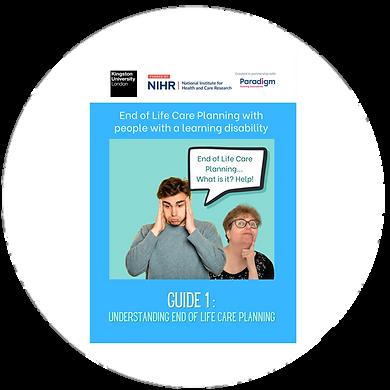
Thefollowingextractwastakenfromguide1whichcanbefoundwithinthetoolkit and demonstrates how people with learning disabilities feel about end-of-life care planning.
‘Decidingonandsharingwhatwewantattheendoflifeisahugelyempowering thingtodo. Theprocessmakesusreflectonwhatis(andisn’t)importanttous. Thisimpactsnotonlywhatwewantattheendofourlifebuthowweliveeach daynow….Makingthemostoflifewhilewehaveit! Endoflifeplanningisimportant!
What Matters? - An e-newsletter for those in Cornwall approaching or planning for end of life and for those who
Sadly, in many cultures, societies and organisations people don’t talk about death and dying. People with learning disabilities say that they feel excluded from these conversations-sometimesinabidtoprotectthem.Thishowevermeansthatthey don’t feel they have fair access to services such as Advance Care Planning or bereavementservices.
The people with learning disabilities who were involved in the Victoria and Stuart projectsaidthattalkingaboutdeathhelpsthemto….
Gain more choice and control overhow we live ourlife,ourdays, how wedie andhow we’dliketobe remembered.

understand, address and share any worries, fears or wishes (with those who are important in our lives).
...minimise conflict and arguments between those around us because they have clarity about what we want.
...have important conversations before its too late!

...grow our confidence in asking questions and assertingourselves.
Explore and communicate to others the support we’d like and need.
Subsequently ‘Advance care planning can make the difference between a future where a person makes their own decisions and a future where others do……. For further reading on Advance Care Planning follow the link: Advance Care Planning.
Where should this be done?

Cornwall Foundation Trust are looking to work with our systempartnersandvoluntarysectortoensurethatadvance care planning is offered at the right time and in the right place. It is agreed that hospitals are not an appropriate space for holding ACP discussions for people with learning disabilitiessoaQIprojectisunderwaytodeterminehowwe canbestimplementthis.Thisislookingtobeaveryexciting project that will involve our expert service users watch this spaceforfurtherinformation.
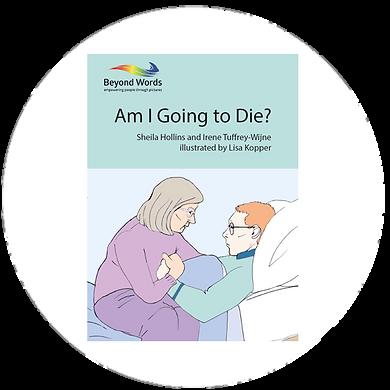
What Matters? - An e-newsletter for those in Cornwall approaching or planning for end of life and for those who are bereaved

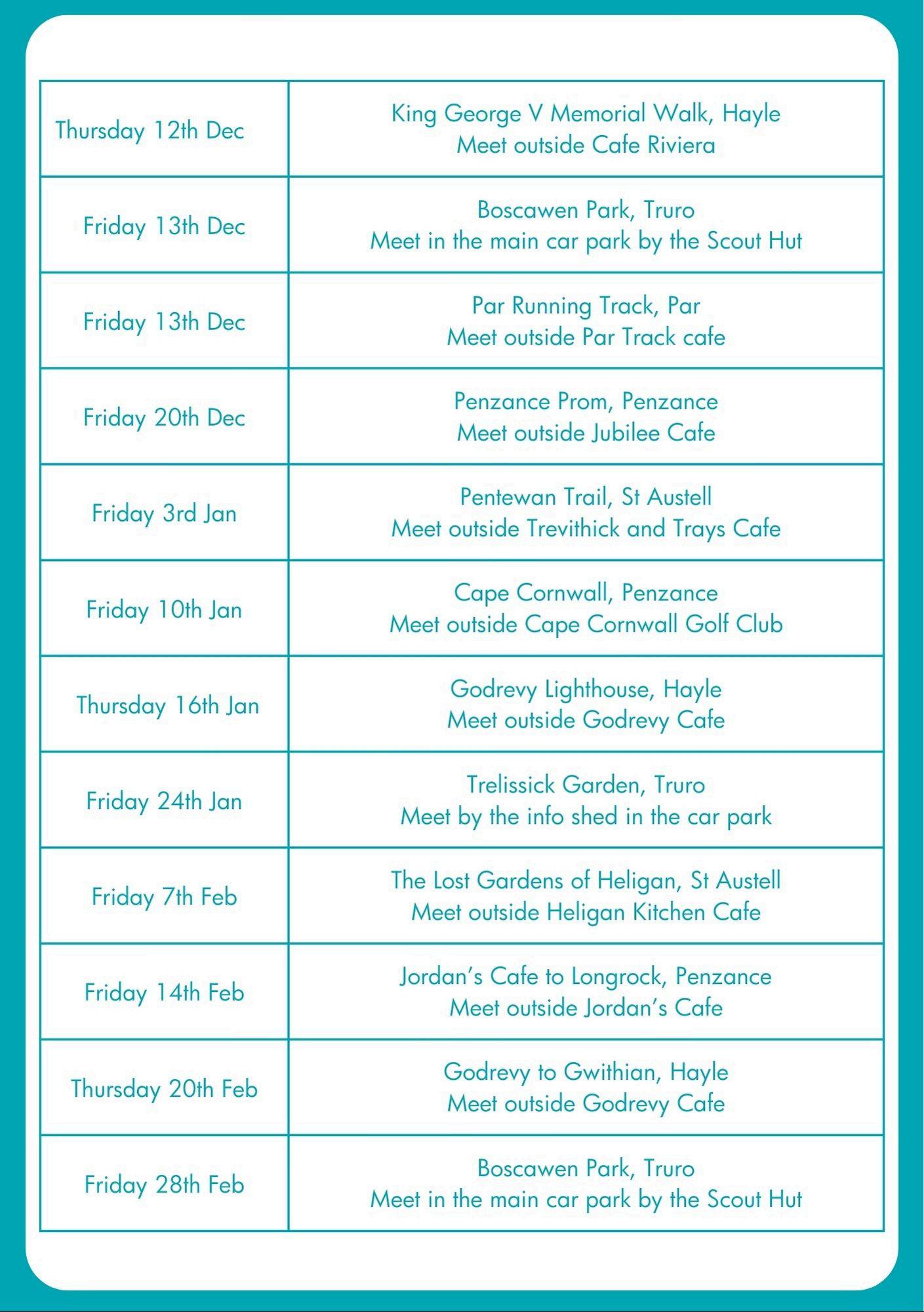

Trecarrel, Drump Road, Redruth, TR15 1LU 01209 210624/ 215889 enquiries@penhaligonsfriends.org.uk
www.penhaligonsfriends.org.uk
Who are we?


Penhaligon’s Friends is a Cornish charity established in 1995. We support bereaved children and young people up to the age of 18, and their families, through a range of support services. Support can be accessed openly, regardless of when the bereavement occurred, or who has died.
We also provide some support to families when facing terminal illness, we can talk through how to explain illness and ideas for supporting children at this challenging time. We have a range of resources that we can share to help children understand their emotions and manage their feelings.
Our service to families is free of charge.
Look us up; www.instagram.com/penhaligonsfriends/ Facebook; www.facebook.com/penhaligonsfriends

Facts;
1012 children and young people were referred to our charity in 2023/24, and 1124 in 2022/23.
Every year in Cornwall over 200 children and young people are bereaved of a parent.
We rely entirely on grants and donations. We could not exist without the generous support of individuals, groups, businesses, and Trusts.
What Matters?
Telephone information and advice on referral to the service, usually accompanied by leaflets, books, resources etc. This is ongoing and families can call back at any time.
Grief Postal Packs – a resource pack for bereaved children containing therapeutic tools, wellbeing resources, treats and information.
Family visit – A chance to meet face to face. We are able to visit at home, in the office or an alternative venue to discuss our support.
Memory Day – Children, young people and their parents and carers attend a full day to remember the person who has died. The day offers a space to share feelings, meet other children with a shared experience, take part in therapeutic activities and take away memories.
Teens Support Groups - Giving young people aged 11-18 a regular time and place to be able to meet up with others to take part in reflective and fun activities and have someone to talk to. We currently run monthly groups in Blackwater and Bodmin.
Family Support Groups – Giving families a regular time and place to be able to come along with their children and meet up, alongside memory activities for the children. We currently run monthly groups in Blackwater and Liskeard.
Family Fun Days- social days out with other bereaved families. We arrange days throughout the year for families and also for young people attending our groups.
Individual Work – A piece of work to explore more complex grief issues, this is carried out by trained volunteers typically within school environment following appropriate assessment of need.
School Support – Support and advice for staff and students in schools and colleges following a death in their community. We are also able to support school staff to enable them to work with students in their setting.
Training – we offer a complete volunteer training programme and run professional training in childhood loss and grief courses for multi- agency professionals.

Charity Number; 1189323

For most pet owners, their pets are more than companions – they are family and a reason to get up in the morning. The Cinnamon Trust cherishes this special bond and helps older people and the terminally ill care for and remain surrounded by the warmth of their pets
We understand the heartbreak and anxiety ageing or terminally ill pet owners face, especially about their beloved pets' future and we’re here to ease those worries.
With the help of thousands of volunteers nationwide, we offer hands-on assistance whenever pet care becomes a struggle, such as dog walking, brushing cats, picking up pet food, or taking pets to the vet
Our dedicated volunteers also offer their homes to pets whose owners are facing a short-term spell in hospital, ensuring the pets always have a home-like environment to be comforted, loved, and kept safe until they can be reunited.
The Cinnamon Trust also offers a Pet Profiling service allowing all pet owners to make arrangements for their pet’s future. During the Profiling process, owners share important information about their pet’s needs, quirks and habits, which will then allow us to make informed decisions in the event of the owner’s passing or permanent move into a nursing home. These arrangements give owners immense peace of mind that their furry, feathered, or any beloved animal is in safe hands and will always be looked after.
For all pets entrusted to us, we ensure that they’re cared for with the utmost dedication, either by carefully choosing a new forever foster home that suits their needs or, if more appropriate, by welcoming them into one of our two home-from-home sanctuaries (Devon & Cornwall).
We welcome all pets and are always keeping companions from the same owner together. Our guardianship extends to covering all veterinary bills and specialist dietary requirements, ensuring that every pet receives the love and care they deserve in their new forever home
What makes The Cinnamon Trust special is that we never rely on kennels or catteries, always giving pets the love and care they’re used to.
While our services are offered at no charge, they are not without expense. Our continued success over the past 40 years is made possible by our generous circle of giving, primarily relying on legacies and donations. Each contribution helps us honour and celebrate this relationship, extending it beyond physical years and providing an invaluable safety net to the people and the pets who need us.
For more information:

www.cinnamon.org.uk
01736 757 900


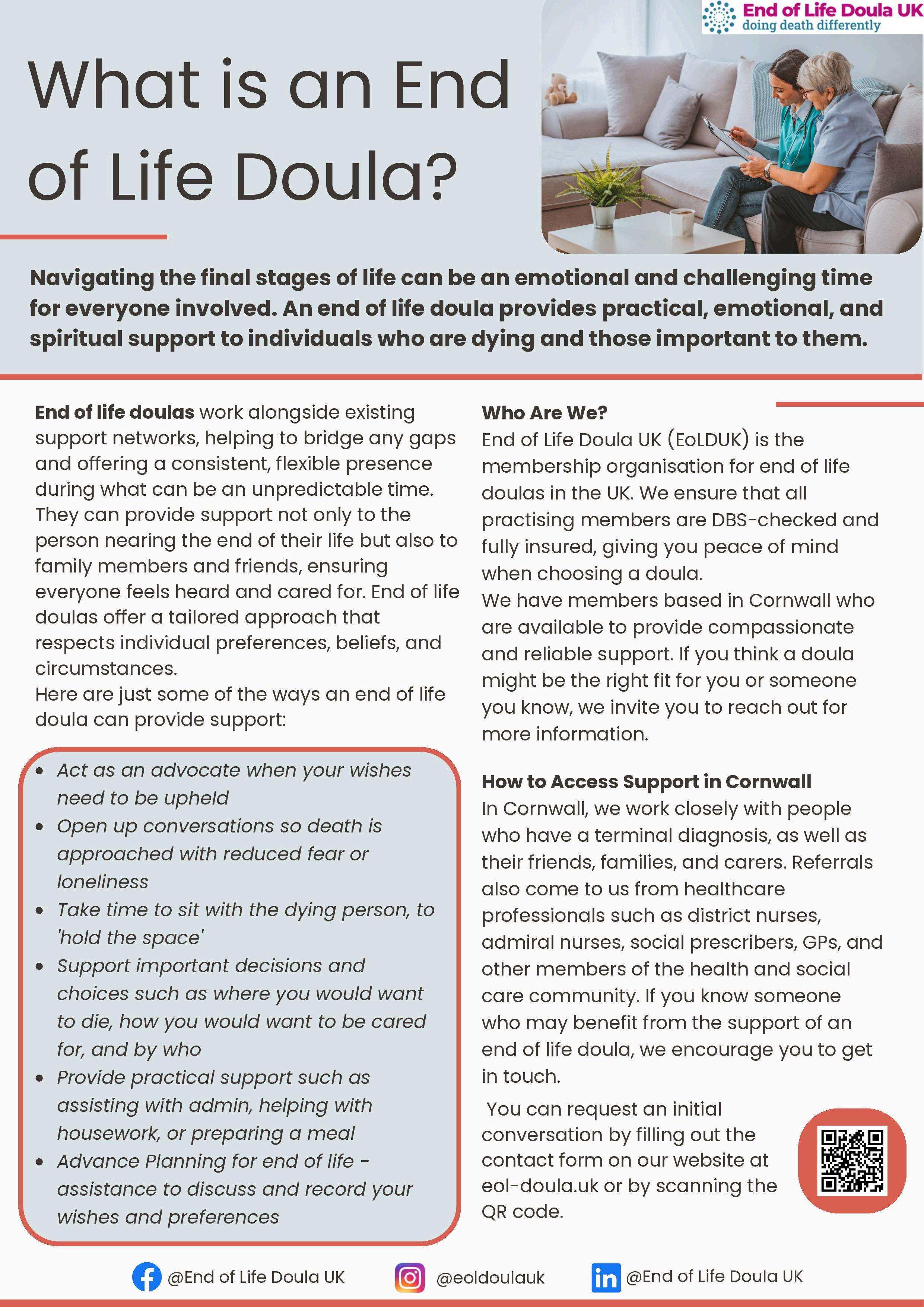
Our Cornwall Hospice Care Doctors talk to Community Engagement Officer
Clare Bray

I recently met up with Dr Sarah Ashley and Dr Sophie Henderson, who were both at Mount Edgcumbe Hospice covering the ward for the day. Dr Sarah has been with Cornwall Hospice Care for the last 8 years and is the longest serving doctor employed by the hospice directly. Dr Sophie in contrast has been with Cornwall Hospice Care for just 3 months, she is based at Mount Edgcumbe Hospice, and she is also an out of hours GP. Our doctors tend to have a ‘base’ hospice where they undertake most of their day-to-day work, but when on call overnight and at weekends, the on-call doctor is responsible for all patient care across at both hospices
I asked them what they felt made hospice care special or a bit different Dr Sophie said “I would say it is having the privilege of time to spend with people, to listen to them, their family and whoever cares for them We always discuss patients’ needs jointly, we share skills, and this helps us to recognise the holistic nature, both of the problem and the solution; I like to think we give thoughtful care. ”
Dr Sarah had also come from being a GP and originally thought that she might miss building relationships with patients over long periods of time but she has not; “In the hospice, we build relationships differently - a patient might be with us for only a couple of weeks but we have blocks of time that we spend with them, a deep dive into them and also their families, really getting to know them, it is very personal and a real privilege ”
I asked Dr Sarah if she felt the way in which people approach the end of their life has changed over the years “Not really, I think you will always have people who understand what is going on, embrace it, celebrate what’s happened in their past and realise that their time is short, and they want to focus on spending quality time doing important things with important people. Other people do not want to consider the fact that they are dying until the last moment Our challenge as a multidisciplinary team, is to meet people where they are For some people talking about dying is a great comfort but for others it is just not the right thing If we go in and push those conversations and try to tell them what we think they need to know immediately, we are going to lose their trust The art in this job is to make sure they understand what is going on, without necessarily using words, to support them to do what they need to in this important time of their lives.”
We went on to talk about the things that are important to people at end of life, Dr Sophie said “comfort and dignity are big themes, but this looks different for each individual Some people want to be told exactly what is going on, and be involved in planning what will happen, others do not, some want to be as awake as possible, even if they are uncomfortable, and some people just want to be as comfortable as possible, even if asleep ”
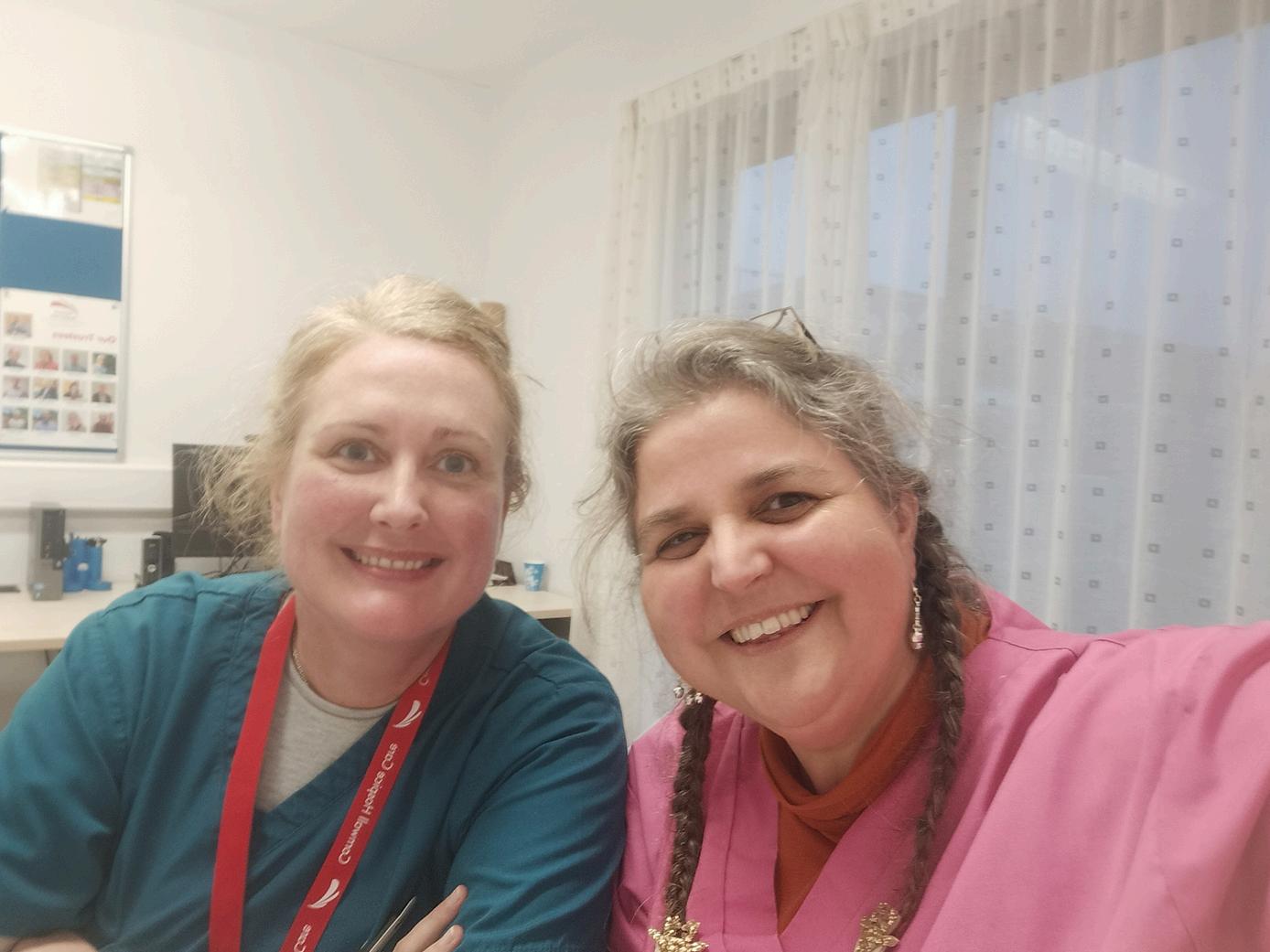
Dr Sophie Henderson and Dr Sarah Ashley
So, what does a typical day as a doctor in the hospices look like? “A typical day starts with the morning handover where we get feedback from what’s been going on with patients overnight, after that we can make a plan for the day, try to work out what needs to be done We will spend time seeing patients on our own, or with other members of staff As senior doctors on the ward, we are very involved with teaching and supervising and supporting junior staff and medical students We will go with them to see patients, and help support them in decision making. Even when the patient facing work is done, we have many other responsibilities. This could be speaking to families, various meetings, preparing teaching, organising rotas, and responding to crises as they happen, it is certainly never boring”!
What Matters? - An e-newsletter for those in Cornwall approaching or planning for end of life and for those who are bereaved.

Cornwall Hospice Care has two
St Julia’s Hospice in Hayle and Mount Edgcumbe Hospice in St
You can support our Cornish charity by shopping in our stores from Bude to Penzance, taking part in one of our fundraising events from Cream Teas to Marathons, playing our weekly Lottery or by giving your gift of time to volunteer with us
You can help those people with terminal illness and their families when they need it most, by leaving Cornwall Hospice Care a gift in your Will.
You help fund our vital work Your gift, large or small, can make a big difference as it will ensure we can care for adults in Cornwall.
If you would like to find out more about leaving a gift to Cornwall Hospice Care in your Will, please contact our Gifts in Wills team on 01726 66868 and choose option 2





